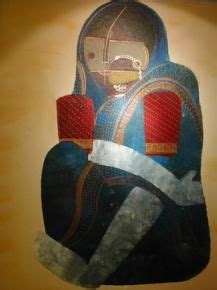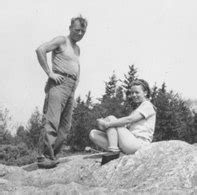A Quote by Helen Fisher
Of all the foods we share, there is nothing more primordial than meat. It's no surprise that meat-eaters still want a partner who will give, receive and share this primordial symbol of a budding partnership.
Related Quotes
The indifference of children towards meat is one proof that the taste for meat is unnatural; their preference is for vegetable foods...Beware of changing this natural taste and making children flesh-eaters, if not for their health's sake, for the sake of their character; for how can one explain away the fact that great meat-eaters are usually fiercer and more cruel than other men; this has been recognised at all times and in all places.
I'm a vegetarian. You're a what? I don't eat meat. How can you not eat meat? I just don't. He says he does not eat meat. What? No meat? No meat. Steak? No... Chickens! No... And what about the sausage? No, no sausage, no meat! He says he does not eat any meat. Not even sausage? I know! What is wrong with him? What is wrong with you? Nothing, I just don't eat meat!
To avoid causing terror to living beings, let the disciple refrain from eating meat... the food of the wise is that which is consumed by the sadhus [holymen]; it does not consist of meat... There may be some foolish people in the future who will say that I permitted meat-eating and that I partook of meat myself, but... meat-eating I have not permitted to anyone, I do not permit, I will not permit meat-eating in any form, in any manner and in any place; it is unconditionally prohibited for all.
When we cling to thoughts and memories, we are clinging to what cannot be grasped. When we touch these phantoms and let them go, we may discover a space, a break in the chatter, a glimpse of open sky. This is our birthright—the wisdom with which we were born, the vast unfolding display of primordial richness, primordial openness, primordial wisdom itself. When one thought has ended and another has not yet begun, we can rest in that space.
While self-interest arising from the enjoyment of meat eating is obviously one reason for its entrenchment, and inertia another, a process of language usage engulfs discussions about meat by constructing the discourse in such a way that these issues need never be addressed. Language distances us from the reality of meat eating, thus reinforcing the symbolic meaning of meat eating, a symbolic meaning that is intrinsically patriarchal and male-oriented. Meat becomes a symbol for what is not seen but is always there--patriarchal control of animals and of language.
We believe in the Three Rs - reducing the consumption of meat and other animal-based foods; refining the diet by eating products only from methods of production, transport, and slaughter that minimize pain and distress; and replacing meat and other animal-based foods in the diet with plant-based foods.
Vegetarians, dropping meat, tend to fill up with too much starch. This leaves them no more healthy than meat-eaters, with constipation, indigestion, colds, catarrhs, coughs and chest complaints to plague them. Eating sparingly of breads, cakes, crackers, cookies, macaroni, spaghetti, anything largely starch, is a far step on the road to good health.





































